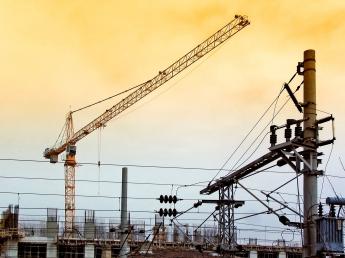
February 11, 2006 - The UK's Emerald Energy and the Houston-based Gulfsands Petroleum say they may be sitting on between 560 million and 720 million barrels of oil and gas in fields near the Iraq border. This and other recent promising finds are stimulating fresh interest in Syria's oil and gas sector whose reserves have been falling sharply in recent years.
Current Syrian oil production, which provides two thirds of export receipts, is thought to be around 450,000 b/d down from a peak of 600,000 in the late 1990s and 530,000 only two years ago. Petroleum and Mineral Resources Minister Ibrahim Haddad oil says production peaked in 1997-1998 with a rate of decline measured at between 4-6 per cent a year.
According to Haddad, 'Our studies show this rate is expected to continue if no new discoveries are made with production falling to 370,000 b/d by 2012 and stabilizing at around 370,000 by 2030.'
Illicit imports of oil from Iraq during the last two years of Saddam Hussein's rule in Iraq helped Syria to sell more of its own oil to the international market. Exports rose nearly 18 per cent after the Kirkuk pipeline from Iraq to Banias was re-opened in 1999. .
Syria's efforts to reverse the trend in declining oil production have focused on switching oil-fired electric power plants to use natural gas in order to release as much crude for export as possible. The government has also intensified exploration and field development. Launch of a new round of tenders for oil and gas exploration is thought to be imminent.
US exit
The exit by some US oil majors such as ExxonMobil and ConocoPhillips has encouraged Syria to seek a more global involvement in exploration. Oil and Natural Gas Corporation and China National Petroleum Corporation, the leading oil firms of India and China respectively, have just finalized a joint $580 million acquisition of Petro-Canada's 37 per cent stake in Syria's Al-Furat oil venture operated by Royal Dutch Shell.
The acquisition includes shares in 36 producing fields which comprise the principal oil producing areas of Syria. These produced at average of 187,350 b/d in the first half of 2005. The asset is believed to hold reserves of 300 million barrels equating to 4.38 years of production at current rates.
Talks have also been held with French, Chinese and Russian companies to sign up for oil deals valued at more than $4 billion. Discussions have also been held with the Iran Oil Exploration Operation Company and with the Croatian oil and gas company INA.
Alternative partners
Canada's Stratic Energy and Kuwait Foreign Petroleum Exploration Company signed an agreement last year covering oil and gas exploration in a 5,000 square kilometers block in the Palmyra belt east of Damascus involving $92 million of investment. Russian company Tafneft is planning to sink three exploratory wells in south-eastern Syria.
Haddad has hinted that Syria may offer more favorable investment terms to foreign companies. 'They are continuously under review, and whenever we feel there are ways to improve terms for the investors we will do that.'